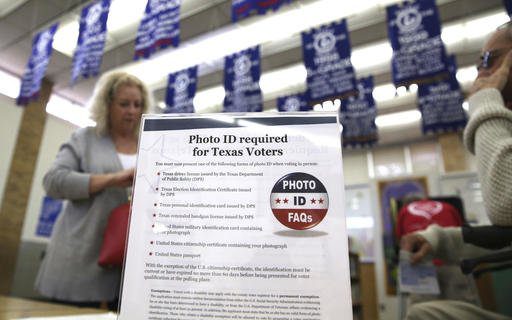
RALEIGH — Colleges, universities and various state institutions recently submitted applications to the NC State Board of Elections to have their student and employee ID’s approved for use in voting. Of the 81 colleges and universities which submitted an application, 72 had their ID’s approved.
“I applaud all 17 UNC system universities for their on-time certifications to permit students to use their school IDs when voting,” said Senator Warren Daniel (R-Burke), one of the sponsors of the voter ID legislation, said in a statement. “The State Board of Elections, which is controlled by Governor Cooper, has the final say in approving those certifications, but it appears to me that they all meet the requirements passed by the legislature.”
Voters, student or otherwise, will not have to show ID to vote quite yet. On March 11, lawmakers fast-tracked Senate Bill 214, which pushes the implementation of Voter ID back until 2020. Governor Cooper signed the bill into law on March 14th.
Only a fraction of the number of schools actually submitted an application. Of the 81 that did submit an application, the thirteen listed below failed to meet the legal requirements.
East Carolina University, Fayetteville State University, NC A&T University, N.C. School of Science and Math, UNC-Chapel Hill, UNC Charlotte, UNC Greensboro, UNC Healthcare, UNC Pembroke, UNC School of the Arts, UNC Wilmington, Winston Salem University and Western Carolina University.
NCSBE Executive Director Kim Strach sent a letter explaining some of the rejections to the co-chairs of the Joint Legislative Elections Oversight Committee, Redistricting and Elections Committee and the Elections and Ethics Law Committee.
“I wanted to bring the reasons for the disapprovals to your attention in hopes that there can be a legislative remedy so that more identification cards can be approved in advance of the 2020 elections when photo identification will be required to vote,” Strach wrote.
Strach said in the letter that of the “850 universities, colleges, state and local employers, including charter schools, and tribal entities that were eligible to have their identification cards approved, 81 institutions submitted requests to the State Board of Elections.”
Strach said that some institutions believed they could not meet the current statutory requirements and others asked for additional time to submit their request. Entities who applied but were rejected failed one or both of two sections of the law.
One section says that the ID cards must “contain photographs of students taken by the university or college or its agents or contractors.”
Another section states that ID cards issued after an enrollment process has to have a way to confirm the identity of the person. Methods for idenity confirmation can inlcude but are not limited to a “social security number, citizenship status, and birthdate of the student.”
Some requests were rejected because the institution allowed a student or employee to provide a photograph instead of the university, college, or employing entity taking the photo. Those instances do not comply with the law, however, Strach indicated there were checks in place to make sure the picture used was valid and the law might need to incorporate those allowances.
“It is my desire that every student and employee of eligible institutions will be able to use their student or employee ID to vote,” NC State Board of Elections Executive Director Kim Strach said in a statement.
“However, the State Board of Elections is bound by the language of state law, which does not allow discretion to approve applications from institutions that do not attest to the statutorily required criteria,” said Strach.
Another part of the law includes confirming an enrollment process whereby an ID is issued after verifying a person’s Social Security number, citizenship status and birthdate.
Some high school students who take college classes receive ID cards without that process and there were universities who said they confirm identities by other means, Strach said in the letter.
“Some of these processes might be satisfactory to confirm the identity of the student but the current statutory requirement that Social Security number, citizenship status and birthdate be included in the confirmation process would need to be removed in order for these institutions to comply.” wrote Strach.
In concluding the letter, Strach said that she and her staff were willing to work with legislators to make any necessary changes to the current laws.
Rep. David Lewis (R-Harnett) Republican indicated that lawmakers would consider implementing a new application period if necessary to address issues as they arise.
The criteria for photo identification became part of state statute after a majority of voters passed a state Voter ID constitutional amendment. Since the passing of that amendment, a judge in Wake County ruled that amendment and one other as ‘invalid’ because the legislature is “illegal.” The North Carolina Court of Appeals has granted the legislature’s motion for a stay pending an appeal.
Critics of using College ID’s to vote have said that out-of-state college students should be voting by absentee ballot from their home state and instead of being allowed to vote from a temporary address. Critics cite an undue influence of temporary residents like college students can have on small local elections where even a few votes can tip a whole race.



